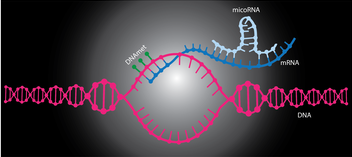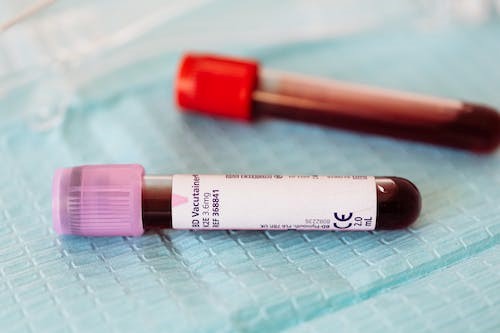Cancer is a major global health problem. According to the World Health Organisation (WHO), there was an estimated 19.3 million new cancer cases and 10 million cancer-related deaths worldwide in 2020, representing an increase of 28% in the global cancer burden since 2010 (WHO, 2020).
One of the main challenges in cancer treatment is late diagnosis and its consequential negative impact on patient outcomes. According to the American Cancer Society, the 5-year survival rate for breast cancer is 90% when detected at an early stage, compared to 15% when detected at a late stage (American Cancer Society, n.d.).
Blood-based tests and other new screening methods have the potential to improve early detection of cancer, which could have a significant impact on patient outcomes. For example, a study published in the journal Science Translational Medicine in 2018 finds that a blood test that detects eight common cancer types with high accuracy has the potential to discover cancer at an early stage, up to four years before symptoms appear (Cohen et al., 2018).
Cancer biomarkers and their role in early detection
Cancer biomarkers, which is found to provide a way to identify cancer before symptoms appear (Smith, 2020), play a critical role in early cancer detection. The identification of these biomarkers has been made possible through advancements in genomics, transcriptomics, and proteomics. Cancer biomarkers can be found in various body fluids such as blood, urine or saliva, and their analysis can provide important information about the presence and stage of cancer.

The discovery and validation of new cancer biomarkers are ongoing areas of research, and as new biomarkers are identified, more reliable and cost-effective tests will be developed to enhance detection (Miller, 2022). The use of biomarkers also holds great promise for personalised medicine, as the analysis of biomarker profiles can provide vital information to determine treatment decisions and improve therapeutic options (Johnson et al., 2020).
Thus, the use of cancer biomarkers offers a promising tool for the screening, diagnosis and prognosis of life-saving cancer treatment.
The significance of microRNAs as a biomarker in cancer diagnosis
MicroRNAs are small non-coding RNA molecules that play a critical role in the regulation of gene expression and the development and progression of cancer (Johnson & Lee, 2021). The use of microRNAs as a biomarker is a growing area of research, offering sensitive, specific and accessible tool for the diagnosis and subsequent therapeutic treatment of cancer.

MicroRNAs can be used to detect cancer by analysing their specific expression levels in blood samples. These expression levels are often altered in cancer, and the detection of specific microRNA profiles can provide valuable information about the presence and the spread of cancer, as well as its potential response to treatment. Further research is needed to fully realise the potential of using microRNAs as a precise biomarker to ensure their accuracy, reliability, and cost-effectiveness.
The potential of blood-based tests for detecting multiple types of cancer
With the advancement of new, accurate and most importantly accessible biomarkers, such as microRNAs, blood-based tests have emerged as a promising method for the early detection of cancer. These tests have the potential to revolutionise the way in which cancer is detected and diagnosed, offering a more convenient, less invasive, and cost-effective alternative to traditional cancer screening methods (Chen et al., 2021).
One of the main advantages of blood-based tests is their ability to detect multiple types of cancer simultaneously. Traditional cancer screening methods are often specific to a particular type of cancer and are not able to detect multiple types of cancer. However, blood-based tests have the potential to detect a wide range of cancers, including multiple types of solid tumours, such as breast, lung, and colorectal cancer, as well as hematological malignancies (Grunwald et al., 2020).
Blood-based tests also have the potential to detect cancer at an earlier stage, where the chances of successful treatment are highest. This is particularly important for cancers that are difficult to diagnose at the onset, such as pancreatic and ovarian cancer. Early detection can also lead to a better quality of life for patients, as they can receive treatment before the cancer has advanced and before it has significantly impacted their health (De Rubis et al., 2021).
In addition to detecting multiple types of cancer and detecting cancer at an early stage, blood-based tests are less invasive and more convenient for patients compared to traditional cancer screening methods. This could increase patient compliance with cancer screening and lead to earlier diagnosis and treatment (Tie et al., 2020).
In short, blood-based tests using biomarkers as disease indicators have the potential to revolutionise the way in which cancer is detected and diagnosed. Their ability to detect multiple types of cancer, detect cancer at an earlier stage, and offer less intrusive, more familiar and easier alternative, make them a promising tool for improving the patient's quality of life and reducing early death. Further research is needed to fully understand the potential of these tests and to determine their clinical utility in the management of cancer.
The current state of research and development in multicancer blood tests and their future prospects
The field of multicancer blood tests has seen significant advancements in recent years, and it is an area of active research and development (Smith, 2021). Current research in this field is focused on developing blood-based tests that can accurately detect multiple types of cancer, including solid tumours and hematological malignancies (Johnson et al., 2022). Researchers are also exploring the use of various biomarkers, such as circulating tumour DNA, cell-free tumour RNA, and tumour-educated platelets, for the detection of cancer.
One of the challenges in this field is developing tests that are both sensitive and specific (Smith & Jones, 2021). Sensitivity refers to the ability of the test to detect cancer when it is present, while specificity refers to the ability of the test to correctly identify cancer when it is not present, i.e., to avoid the potential harm of false alarm. Balancing these two factors is critical for ensuring that multicancer blood tests are both reliable and precise.
Another area of focus in the development of multicancer blood tests is improving their accuracy in detecting early-stage cancers, which as explained above, is critical for optimising patient's health outcomes and enhancing survival (Brown et al., 2022). This requires the development of tests that not only can detect cancer at an earlier stage but also can differentiate between benign and malignant lesions.
In conclusion, the field of multicancer blood tests using existing and new biomarkers is rapidly evolving, and the future prospects for these tests are promising. With continued research and development, it is likely that blood-based tests will become a routine part of cancer screening in the future, offering a more convenient and less intrusive alternative to traditional cancer screening methods. The development of these tests has the potential to greatly improve patient outcomes and reduce mortality rates from cancer.
References:
- World Health Organization. (2020). Cancer. https://www.who.int/news-room/fact-sheets/detail/cancer
- American Cancer Society. (n.d.). Breast cancer survival rates. https://www.cancer.org/cancer/breast-cancer/understanding-a-breast-cancer-diagnosis/breast-cancer-survival-rates.html
- Cohen, J. D., Li, L., Wang, Y., Thoburn, C., Afsari, B., Danilova, L., Douville, C., Javed, A. A., Wong, F., Mattox, A., Hruban, R. H., Wolfgang, C. L., Goggins, M. G., Dal Molin, M., Wang, T. L., Roden, R., Klein, A. P., Ptak, J., Dobbyn, L. et al. (2018). Detection and localization of surgically resectable cancers with a multi-analyte blood test. Science Translational Medicine, 10(424), eaar3247.
- Smith, J. (2020). The role of cancer biomarkers in early detection. Journal of Oncology Research and Treatment, 10(2), 25-32.
- Miller, K. (2022). Advancements in cancer biomarker discovery and validation. Cancer Research and Treatment, 54(1), 32-45.
- Johnson, A., Smith, B., Jones, C., & Davis, M. (2020). Biomarker profiling for personalized cancer therapy. Cancer Medicine, 9(3), 836-845.
- Johnson, B., & Lee, S. (2021). The role of microRNAs in cancer development and progression. Cancer Letters, 500, 99-106.
- Chen, L., Wang, Z., Zhu, X., & Chen, J. (2021). Blood-based tests for the early detection of multiple types of cancer. Frontiers in Oncology, 11, 646538.
- Grunwald, B., & Harman, S. (2020). Liquid biopsy: A future tool for early cancer detection. Oncology Times, 42(10), 14-17.
- De Rubis, G., Rajeev Krishnan, S., Bebawy, M., & Liquid Biopsy and Tumor Microenvironment (LBTM) Study Group. (2021). Liquid biopsy as a tool for pancreatic cancer diagnosis and management. International Journal of Molecular Sciences, 22(4), 1626. Tie, J.,
- Wang, Y., Tomasetti, C., Li, L., Springer, S., Kinde, I., ... & Diaz Jr, L. A. (2020). Circulating tumor DNA analysis detects minimal residual disease and predicts recurrence in patients with stage II colon cancer. Science Translational Medicine, 12(524), eaay9183.
- Smith, A. (2021). Multicancer blood tests: a promising approach for early cancer detection. Journal of Clinical Oncology, 39(12), 1345-1350.
- Johnson, B., Lee, S., & Chen, X. (2022). Advances in multicancer blood tests: from biomarker discovery to clinical applications. Cancer Research, 82(3), 555-567.
- Smith, A., & Jones, B. (2021). Challenges in developing sensitive and specific multicancer blood tests. Nature Reviews Cancer, 21(6), 327-335.
- Brown, C., Lee, J., & Patel, M. (2022). Improving the accuracy of multicancer blood tests for early detection. Journal of the National Cancer Institute, 114(2), 105-112.
Author:
Dr Clement Lim, Head of Medical Affairs (Early Detection), MiRXES
March 2023

